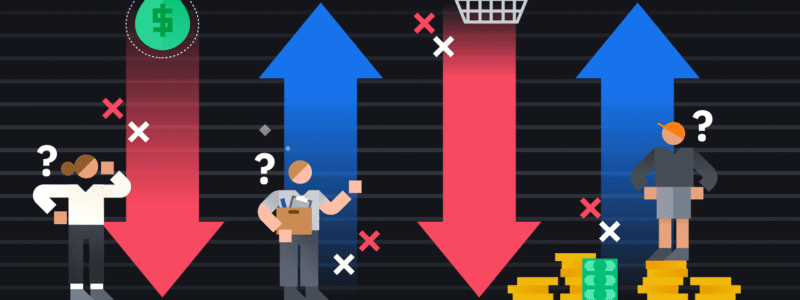
Stagflation will be a key risk for the global economy in 2023, according to investors who say hopes of a market rally are premature after this year’s massive sell-off.
Nearly half of the 388 respondents in the new MLIV Pulse survey said a scenario in which economic growth continues to slow while inflation remains high will dominate the world next year. A deflationary recession is considered the second most likely scenario, while a recovery with high inflation is considered the least likely scenario.
The survey results signal that next year will again be a difficult one for risky assets after central bank measures to tighten monetary policy, rising inflation and a full-scale war unleashed by Russia against Ukraine triggered the most significant stock market crash since the 2008 global financial crisis, Bloomberg writes. More than 60 percent of those surveyed say investors around the world are still overly optimistic about asset prices.
“Next year is still going to be a tough one,” said Buffalo International Fund portfolio manager at Kornitzer Capital Management Inc. Nicole Kornitzer.
“Definitely stagflation is expected at this point,” the expert notes.
Meanwhile, about 60% of those surveyed expect the dollar to weaken further. That contrasts with the October survey, when nearly half of respondents expected to hold long dollar positions ahead of the U.S. Federal Reserve (Fed) meeting in November.
“The dollar is likely to weaken over the course of 2023,” Cornitzer said. – Perhaps not very significantly, but the trend will probably be downward.”
All investors’ attention is focused on what the Fed will do next, with economic growth likely to come under even more pressure as interest rates remain high for longer. Another risk to the global economy is China’s “zero tolerance” policy to the coronavirus, experts say.
Stagflation (a word combination of stagnation + inflation) is a situation in which economic recession and a depressed economy (stagnation and rising unemployment) are combined with rising prices – inflation.
The invention of the term is attributed to British politician and Minister of Finance of the early 1970s, Ian McLeod. The expression was first used by MacLeod in a parliamentary speech in 1965.